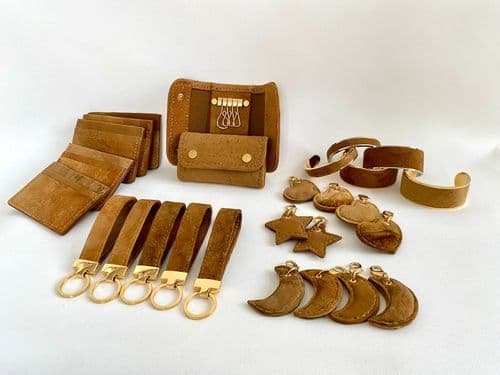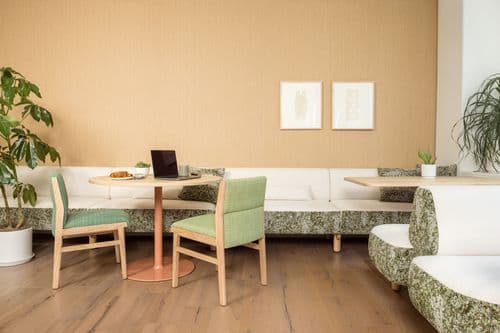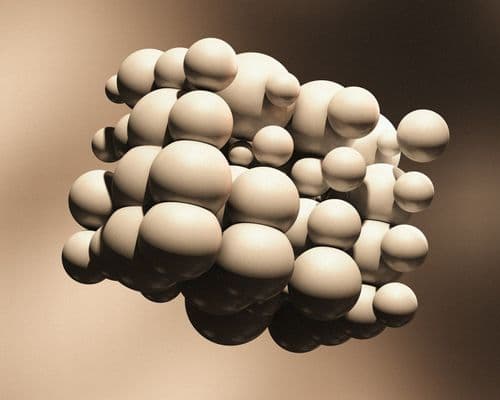Can you share the inspiration that led to the founding of Natural Fiber Welding (NFW)?
Humans are over-reliant on petroleum and petrochemicals for plastics. Science is showing that petroleum and plastics are fundamentally toxic to humans and ecosystems, not to mention that plastics are energy and carbon-intensive and thus contribute to climate change. NFW was founded to be a climate-positive and health-positive material solution to over-reliance on petroleum, petrochemicals, and toxic plastics.
NFW believes that the abundance and diversity of photosynthesis (‘nature’) is the renewable, healthy, and climate-positive way forward for people's material needs as we design and manufacture clothes, shoes, accessories, and our built environments of homes, offices, and automobiles.
NFW’s motto mentions an ever-growing ecosystem of product families to remake everything. Can you provide examples of these product families?
MIRUM (‘leather-type’ family of materials), PLIANT (tough moulded compounds, e.g., for shoe outsoles), TUNERA (soft yet durable foams for yoga mats and shoe insoles), and CLARUS (performance fabrics) comprise the majority of our family of materials. MIRUM, PLIANT, TUNERA, and CLARUS are all scaling as natural, safe, and high-performance alternatives to petroleum and plastics.

How does NFW test its creations to ensure they safely return to the earth at the end of their lives, aligning with principles of circularity?
NFW leverages third parties to execute our revolutionary platform while rigorously and holistically holding to our GROUND RULES of:
- Start Well: We have partnered with Fibershed and other key global supply chain partners to deliver abundant natural inputs for NFW to formulate with.
- Stay Clean: We have partnered with IPCO and other key global manufacturing partners to make sure all manufacturing processes are closed-loop and enable natural inputs to retain their safe, natural forms.
- End Well: We have partnered with the USDA and other 3rd party testers to validate that NFW’s materials return safely to healthy soil.
To put it together, we have partners like Sage Automotive Interiors and BMW to further develop solutions that enable NFW to execute revolutionary materials that are only possible because NFW formulates ALL our materials according to our GROUND RULES with direction and help from the product brands that are adopting NFW’s material solutions.

How do you unlock the performance potential of natural inputs without introducing synthetic toxins and chemicals?
When it comes to high-performance materials, photosynthesis is (plants are) the most productive system for high-performance materials that humans know or ever could know. Plants must be durable under many conditions, stand up to UV light exposure, be strong, etc.
What NFW has done is show that we can interface with existing global supply chains of abundant, well-characterized byproducts and coproducts and formulate materials like MIRUM with standard supply chain infrastructure. We leverage the existing performance and abundance of natural inputs, and by using standard roll-to-roll automation, we produce natural composites so that the global supply chain is made free from (over)dependency on petrochemicals and plastics at scale.
The key for NFW has always been proving the technical performance of our materials to customers. With the latest automotive validations, for example, NFW has shown that automotive-grade materials are possible using ONLY abundant natural inputs with standard supply chain manufacturing and automated ‘mechanical muscle’. You can read the summary below for how BMW is validating this point for NFW here.
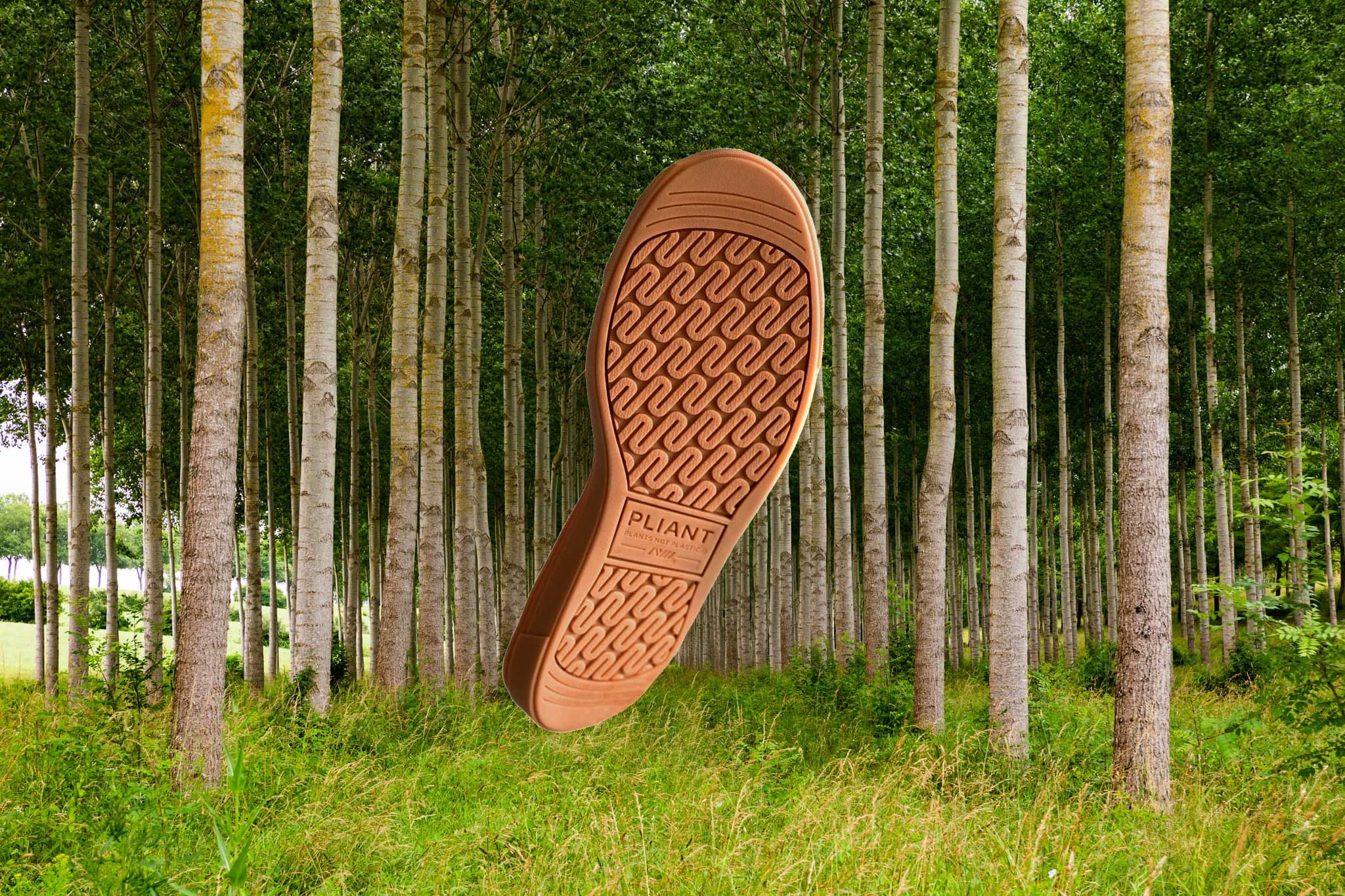
What is the unique value proposition of NFW’s materials, and how do they compare to other similar materials on the market?
NFW is unique in its approach to making 100% natural materials that perform. Many other companies are willing to mix petrochemicals and plastics with biomass to meet performance specifications. NFW is unique with our proven ability to meet performance thresholds in ways that are completely free of toxic inputs. This is an incredibly important point of nuance. Even a small amount of toxic input makes an entire material mixture toxic. Enabling 'return to earth’ programs at scale requires toxins to be rigorously excluded.
To reiterate, the choice of using only abundant, low-cost, well-characterized is optimised for scale, and the logical open question is whether or not sufficient material performance can be produced. At this point in history and very happily, NFW has now validated that the highest, most stringent performance attributes can be met in automotive applications, which means our platform is poised for global growth to serve a wide variety of markets and applications.
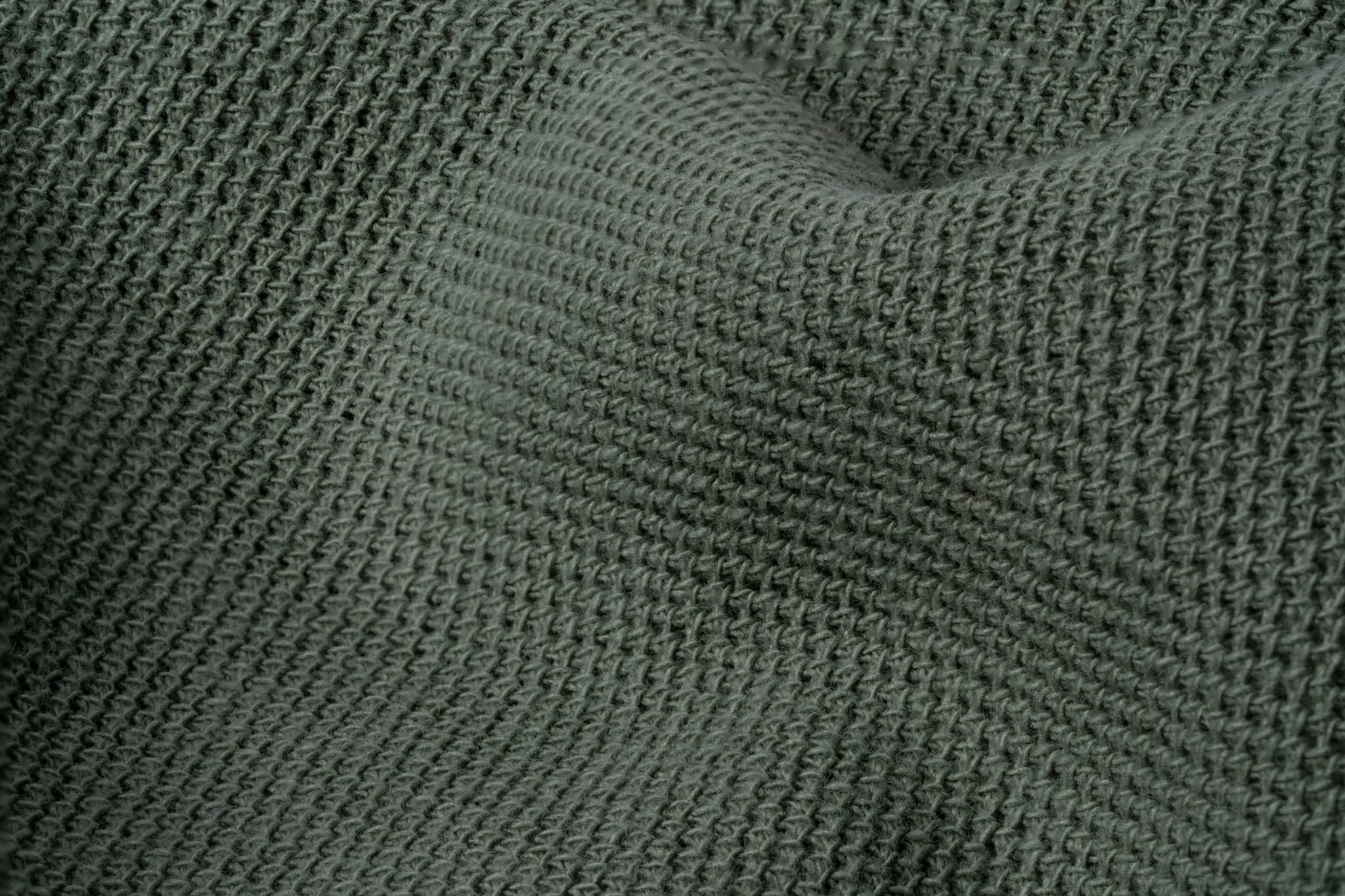
The belief that nature can provide everything is a central theme at NFW. How do you see this belief shaping the future of material innovation and production?
Nature is the only large-scale, nontoxic, solar energy-driven circular material economy known to humans. After approximately 80 years of plastic materials from fossil fuels and the petrochemical industry, the scientific and economic data all suggest that a petroleum-driven materials economy does not fit planetary boundaries, nor is this approach conducive to human or broader ecosystem health, nor can this system, which is filled with toxic waste, be holistically ‘circular’ at scale in economically relevant ways.
NFW’s GROUND RULES and our resulting materials are specifically designed to optimise for positive impact through scale, unit economics, and ultimate performance, including ‘circular’ performance that fits existing ecosystems. NFW remains focused on rigorous technical adherence to materials that are simultaneously low-carbon, non-toxic, and abundant for all. We at NFW cannot think of a better way to rectify human economic needs with what we believe are the most abundant and redundant natural sources that fit planetary boundaries. We are a team that is building a formidable network of brand customers as well as global supply chain and sourcing partners such that we collaboratively deliver a material economy that delivers global positive impact with optimised capital efficiencies.

